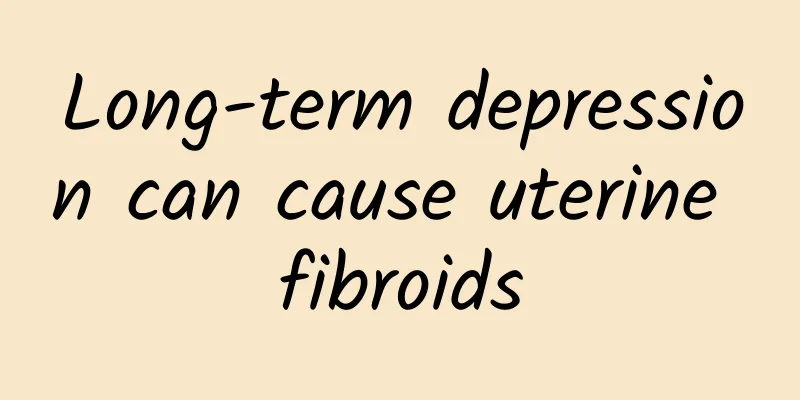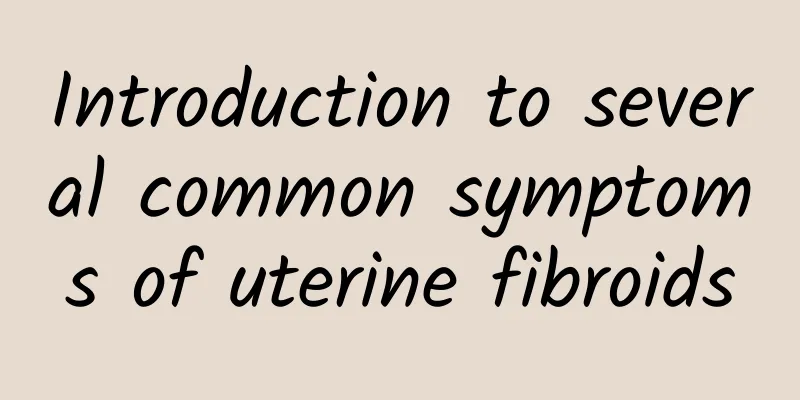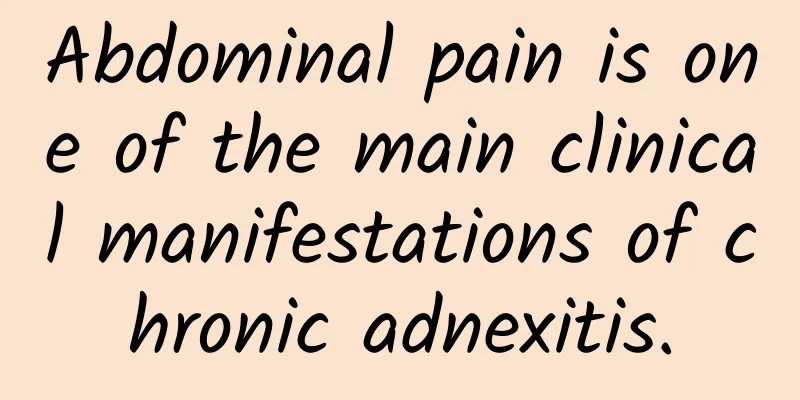Long-term depression can cause uterine fibroids

|
Uterine fibroids are the most common benign tumors in the female reproductive system, known as the "first gynecological tumor". Modern medical research believes that the onset of uterine fibroids may be related to endocrine disorders caused by long-term excessive estrogen levels. Therefore, women with long-term depression are prone to uterine fibroids. Because women are more sensitive, have poor emotional stability, and demand perfection, and most modern women, especially middle-aged women, have to bear the dual pressures of work and family, and are more likely to be extremely nervous. Long-term mental stress, tension, anxiety and other negative emotions may cause depression in women. At this time, the patient shows a significant and lasting low mood, which is not commensurate with his or her situation. Severely depressed patients may even have suicidal thoughts or behaviors. Women who are depressed are prone to endocrine disorders because they suffer tremendous physical and mental pain. For example, the secretion of estrogen increases and its effects strengthen, which can sometimes last for months or years. Women with long-term high estrogen levels often develop uterine fibroids, which are more common in women of childbearing age between 30 and 50 years old and may also be related to the above factors. At the same time, Chinese medicine believes that "stagnation of Qi, internal injuries caused by the seven emotions, liver dysfunction, and poor blood circulation lead to stagnation in the uterus, which manifests as a lump in the lower abdomen that can be moved by pressing, pain in no fixed place that sometimes gathers and sometimes disperses, depression, and fullness in the chest and flanks", which also shows to a certain extent that depression has a certain impact on the occurrence of uterine fibroids. |
<<: How should people with cervical erosion arrange their sexual life?
>>: Clinical features of uterine fibroids
Recommend
Premenstrual syndrome is so annoying, it turns out it’s caused by hormone disorder! Yoga teacher teaches 3 pelvic exercises to relieve premenstrual discomfort
Some women begin to experience premenstrual syndr...
Crazy treasure hunting every day, office ladies get fat! Famous weight loss doctor: for decreased concentration
If you are keen on catching Pokemon, be careful n...
So brave! Lowering cholesterol can help you lose weight, the top offender
Many people regard health foods as a guarantee of...
Why do you need to hold your urine when doing ultrasound for uterine fibroids? Do you need to hold your urine when doing ultrasound for uterine fibroids?
Why do you need to hold your urine when you have ...
Brief introduction: Three effective measures to prevent dysmenorrhea
Dysmenorrhea is a gynecological disease that can ...
How to prevent ovulation bleeding
How to prevent ovulation bleeding? Ovulation blee...
To combat obesity and eliminate edema, you must press these 4 major acupoints! Female Chinese medicine practitioner: This trick doubles the effect before pressing acupoints
For many women, losing weight can be a long-term ...
Is it easy to get pregnant with cervicitis and endometritis?
Both cervicitis and endometritis may affect pregn...
What are the symptoms of uterine prolapse
What are the symptoms of uterine prolapse? Uterin...
The root cause of female adnexitis
Since adnexitis is often associated with pelvic p...
The difference between self-testing fungal and bacterial vaginosis
The difference between self-diagnosed candidal va...
How to check for amenorrhea
Amenorrhea is a very recurrent clinical symptom. ...
Having trouble losing weight and suffering from constipation? Eat this one pill to get slim and high in fiber, and help clean your intestines
In order to have a slim figure, many people often...
Sculpting charming curves abdominal exercises with breathing
(Text/Bernadette de Gasquet) The various exercise...
The harm of malignant uterine fibroids cannot be ignored!
What are the dangers of malignant uterine fibroid...









